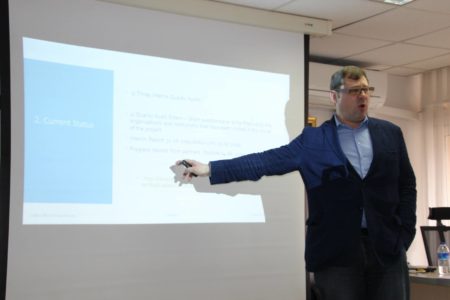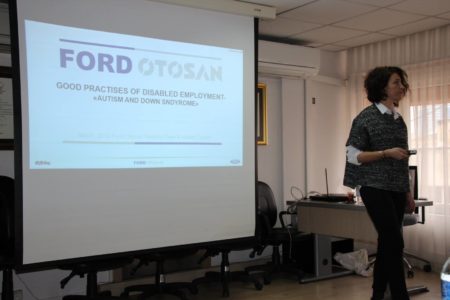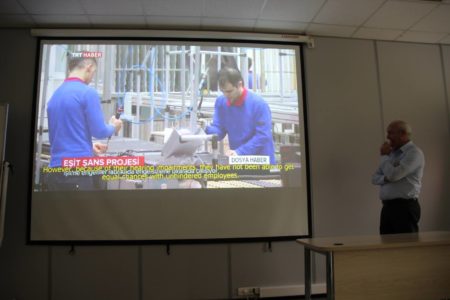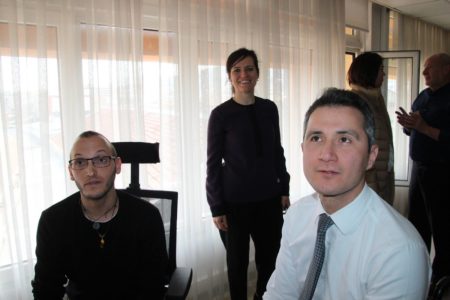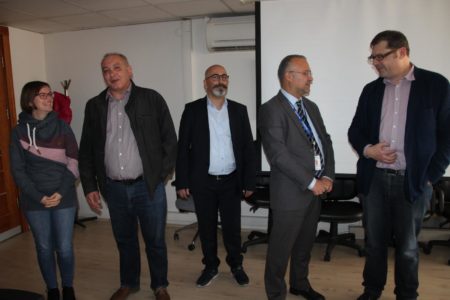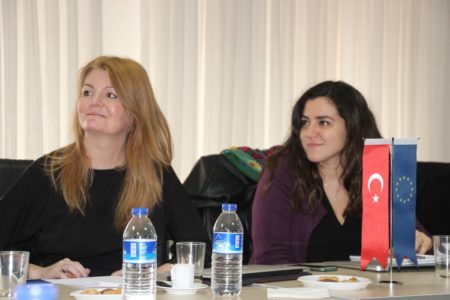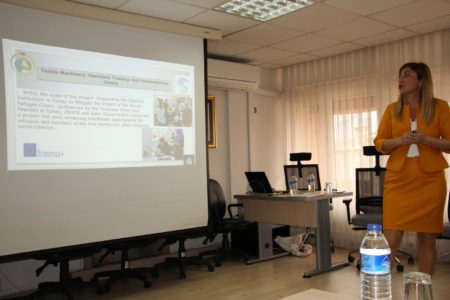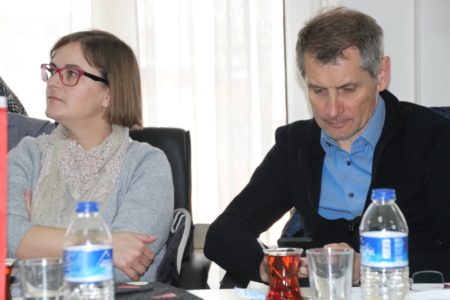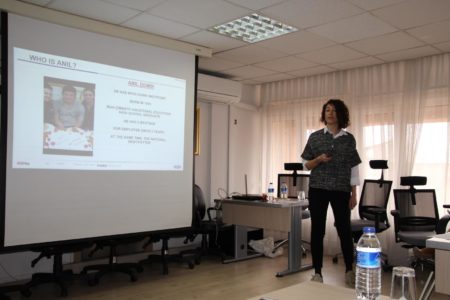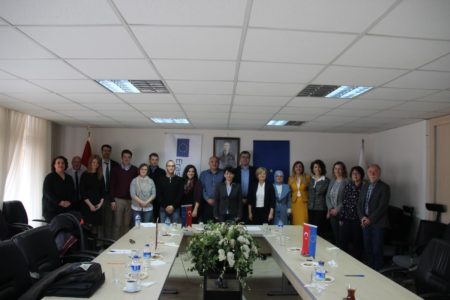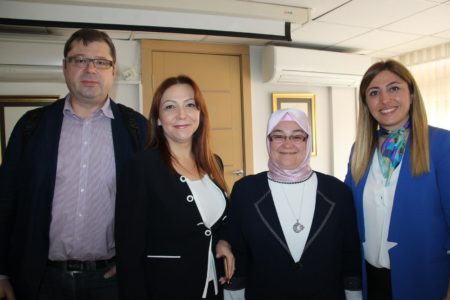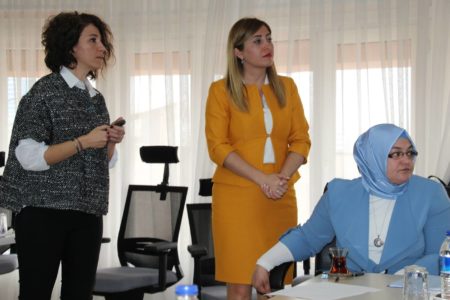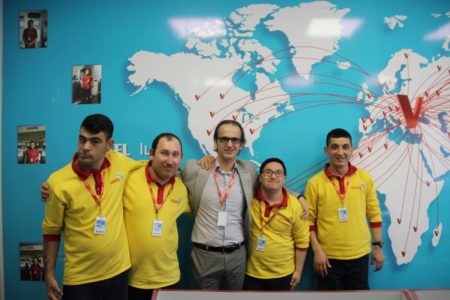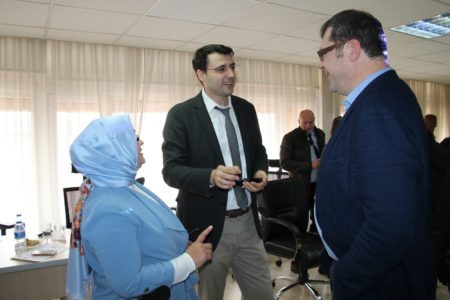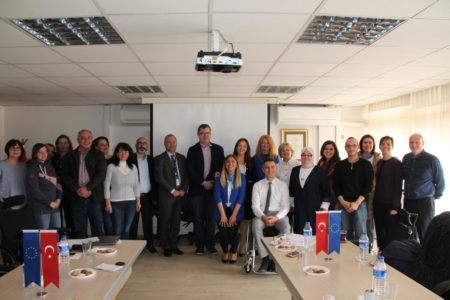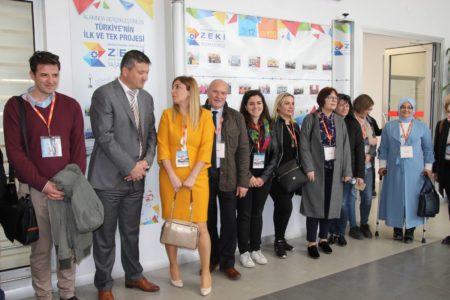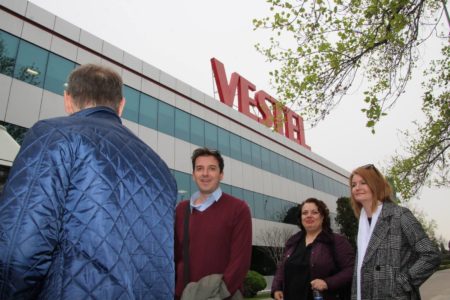The 4th DISEMEX TPM was organized as a two-days event on March, 28-29 with a highly intensive programme, prepared by the project partner Izmir Governorship. Besides a compact management and planning part, there were institutional visits to and presentations of the best practice cases in the Region of Izmir on both days of the TPM.
The meeting started with a presentation of the Izmir Region and the Governorship for a better understanding of the local conditions. Special attention was granted to the issues connected to the Syrian refugees, about 140.000 of whom had settled down in and around Izmir, and the measures that are undertaken by the Governorship that has to handle the issue, which is relatively new for Turkey. Thus, the issues of migration management have become particularly important and require international knowhow and financial support from the EU.
Obviously the special Diversity Management and Corporate Social Responsibility programmes work particularly well at large internationally operating corporations and provide the needed impulses to implement innovative measures and methods to enable people with disabilities to find employment in their company. The four examples presented within the project demonstrate this.
The first was that of Otosan Ford Koç Compay, that employs people with autism and Down syndrome. According to the companies’ sustainability report, the company was the first to employ this group of people at such dangerous industrial production jobs in manufacturing.
The second was presented during the visit of the production facilities of Vestel company – an electronics and home appliance division of the Zorlu Holding – the 3rd largest industrial holding of the country. Since 2015 Vestel started to employ people with special needs with the current amount of 441 out of 7000 employees in total. Among them, 185 deaf and hard of hearing persons represent the most substantial group of about 30%, working on almost every station of the production line.
The third was Turcell, the biggest mobile operator in Turkey. The company employs people, mainly with physical handicaps, in different divisions of the company, whereas about 50% are placed at the call-centers of the company. The call-centers are located throughout the country are accessible and featured with appropriate assistive equipment, such as WC, tables etc. There is a door-to-door shuttle-service organized for the employees with special needs, bringing them from their homes to work.
The final best practice example disucssed was partly a bottom-up case – the successfully story of the personal and professional achievement of Niyazi Koçak. Despite an accident and injury that resulted in a wheelchair confinement, Niyazi Koçak has grown from a trainee up to a Senior HRM executive of the world leading mode brand developer and textile manufacturer HUGO BOSS. Niyazi presented the company’s programmes on inclusion of people with disabilities, stating that currently 117 of almost 15,000 HB employees have special needs.
The DISEMEX consortium would like to thank the companies for their time and willingness to provide information.
#disemex #erasmusplus #otosan #otosanford #hugoboss#corporatesocialresponsibilty #turkcell #vestel #izmir

